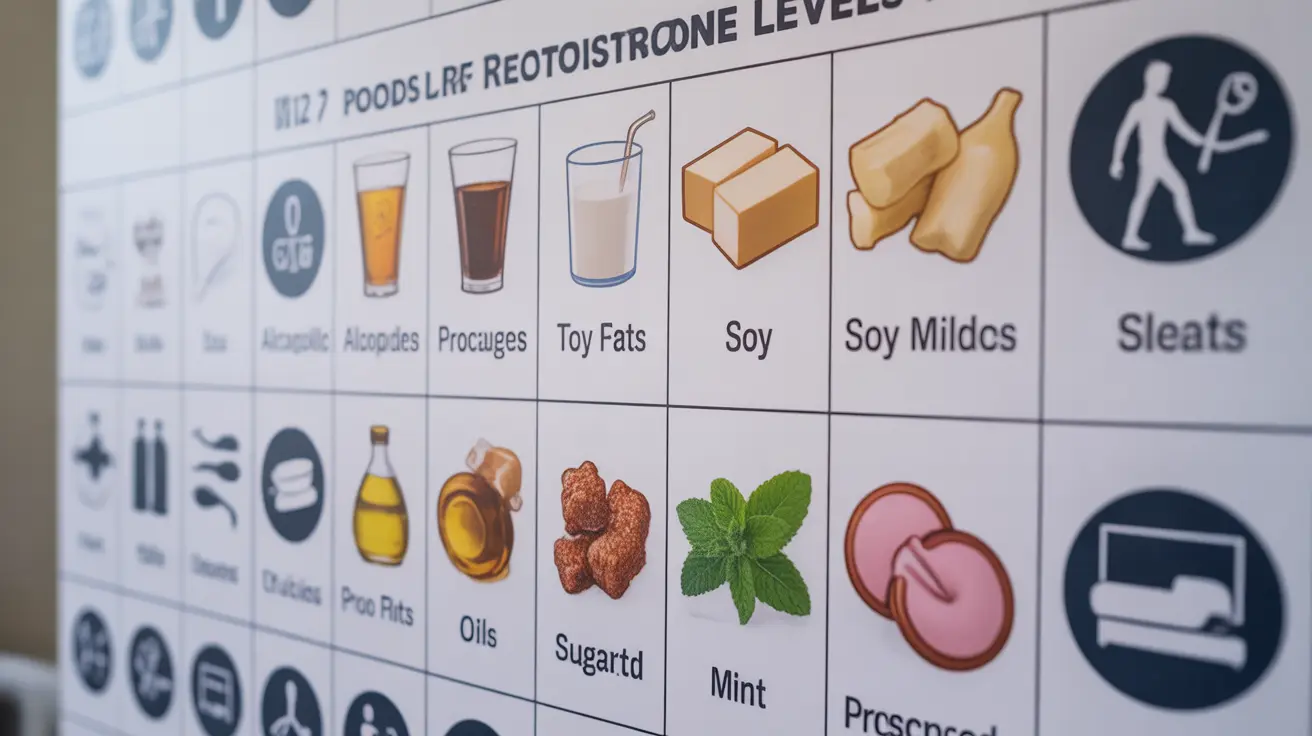Understanding how different foods affect hormone levels, particularly testosterone, is crucial for maintaining optimal health. While many people focus on foods that boost testosterone, it's equally important to be aware of dietary choices that might inadvertently lower this vital hormone. This comprehensive guide explores common foods and dietary patterns that could impact your testosterone levels.
The Impact of Soy Products on Testosterone
Soy products contain compounds called phytoestrogens, which can influence hormone balance in the body. While research shows mixed results, regular consumption of large amounts of soy products may affect testosterone levels in some individuals. Common soy products to be mindful of include:
- Tofu
- Soy milk
- Edamame
- Soy protein isolate
- Tempeh
It's important to note that moderate consumption of soy products as part of a balanced diet typically doesn't cause significant hormonal changes in most people.
Alcohol's Effect on Testosterone Production
Regular alcohol consumption can significantly impact testosterone levels through multiple mechanisms. Alcohol can interfere with hormone production in the testes and affect the liver's ability to metabolize hormones properly. Even moderate drinking may temporarily reduce testosterone levels, while chronic heavy drinking can lead to long-term hormonal imbalances.
Problematic Fats and Oils
Not all fats are created equal when it comes to testosterone production. Certain types of fats may have a negative impact on hormone levels:
Trans Fats and Processed Oils
These industrially produced fats can interfere with hormone production and should be limited:
- Hydrogenated oils
- Partially hydrogenated vegetable oils
- Processed vegetable oils high in omega-6 fatty acids
The Sugar Connection
High sugar intake can affect testosterone levels through various mechanisms:
- Insulin resistance
- Weight gain
- Hormonal disruption
- Increased inflammation
Processed foods and beverages high in added sugars should be limited to maintain healthy hormone levels.
Other Testosterone-Affecting Foods
Several other common foods and ingredients may influence testosterone levels:
Mint Products
Spearmint and peppermint, particularly in concentrated forms, may have mild anti-androgenic properties that could affect testosterone levels when consumed in large amounts.
Processed Foods
Many processed foods contain ingredients that may affect hormone balance:
- Artificial preservatives
- Chemical additives
- High sodium content
- Hidden sugars
Frequently Asked Questions
What foods are known to lower testosterone levels naturally?
Foods that may lower testosterone include processed soy products, foods high in trans fats, excessive alcohol, foods with added sugars, and certain mint varieties when consumed in large amounts.
How does consuming soy products affect testosterone production?
Soy products contain phytoestrogens that may influence hormone balance. While moderate consumption is generally safe, excessive intake might affect testosterone levels in some individuals, though research shows mixed results.
Can drinking alcohol regularly reduce my testosterone?
Yes, regular alcohol consumption can lower testosterone levels by interfering with hormone production in the testes and affecting the liver's ability to metabolize hormones effectively.
Are there specific fats or oils that negatively impact testosterone levels?
Trans fats and highly processed vegetable oils may negatively impact testosterone levels. These include hydrogenated oils and oils high in omega-6 fatty acids.
How does sugar intake influence testosterone and hormone balance?
High sugar intake can lower testosterone levels by promoting insulin resistance, contributing to weight gain, and causing hormonal disruption. Excessive sugar consumption may also increase inflammation, which can affect overall hormone balance.
Remember, while certain foods may affect testosterone levels, maintaining a balanced diet, regular exercise, and healthy lifestyle habits are key to optimal hormone health. If you have concerns about your testosterone levels, consult with a healthcare provider for personalized advice.




